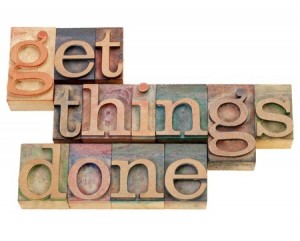 This past Friday, December 12th was the second anniversary of relaunching Entrepreneur Architect as a resource to inspire small firm architects to build better businesses. On December 12th, 2012, not only was this domain EntreArchitect.com launched, but I announced to the world with my own voice that the Entrepreneur Architect Podcast was to be my 12/12/12 Project; my “life altering” commitment to the mission of building a community of small firm architects with an influential force in the profession.
This past Friday, December 12th was the second anniversary of relaunching Entrepreneur Architect as a resource to inspire small firm architects to build better businesses. On December 12th, 2012, not only was this domain EntreArchitect.com launched, but I announced to the world with my own voice that the Entrepreneur Architect Podcast was to be my 12/12/12 Project; my “life altering” commitment to the mission of building a community of small firm architects with an influential force in the profession.
Throughout the past 24 months, I have shared most everything I know about running a small firm architecture studio. I’ve shared the good and bad, the happy and the sad. I have held nothing back. I have enjoyed my time speaking with dozens guests and learning from all the knowledge that they were willing to share with our listeners. I have had a great time producing the show and connecting with all of you, the Entrepreneur Architect community.
With the latest episode sharing my 5 rules for successful leadership, I have now published 56 episodes. The show has been downloaded almost 80,000 times and is listened to throughout the world.
In celebration of our 24 months “on the air”, today I am sharing the top five episodes of the Entrepreneur Architect Podcast. These are the most popular episodes to date in terms of total number of downloads. Looking back at the many questions I receive each day via email and through the Entrepreneur Architect Academy, I am not surprised by the results of this top 5 list.
Without a doubt, the top items on our agenda as small firm architects are to find more time and make more money.
Number 5
Episode 45: 10 Tips From a Recovering Procrastinator
 My name is Mark R. LePage and I am a recovering procrastinator.
My name is Mark R. LePage and I am a recovering procrastinator.
After 40+ years, I don’t have much hope of ever finding a cure, but recently I have found some ways to hang on to the wagon and stay focused on getting things done.
With so many things on my plate, I often find myself paralyzed with overwhelm and I get nothing done.
I fall back on old bad habits of soothing time wasters like clicking the “Get Mail” button on my Mac over and over again and checking my email for the next very important message. Or I find myself…
Number 4
Episode 40: My 4 Simple Steps to Getting Things Done
A little past 6AM, tunes from the local radio station wake me from a very deep slumber. Typically, I will set the alarm to 6:14, so I hear music rather than the daily bad news report. I am very serious about my “full media blackout“.
I certainly don’t spend enough time sleeping and for the past few weeks I’ve been rising at 4:34AM. My oldest son James decided that he wanted to join a morning swim training camp and he needs to be on deck by 5:50AM. So this is my summer schedule and sleep is still something I am still trying to figure out.
I’m up late every night working…
Number 3
Episode 24: My Architecture Business Plan for Fivecat Studio
 In this episode of the Entrepreneur Architect Podcast, I talk about how to create your own life plan and I’ll walk you through my own business plan step-by-step; the actual plan that I developed for Fivecat Studio back in 2006.
In this episode of the Entrepreneur Architect Podcast, I talk about how to create your own life plan and I’ll walk you through my own business plan step-by-step; the actual plan that I developed for Fivecat Studio back in 2006.
I’ll share all my previously confidential information and show you how Annmarie and I took Fivecat Studio from a struggling stalled small firm to a successful regional leader.
Since that time, my plans have evolved…
Number 2
Episode 1: Architect is Dead | An Interview with Christopher Pollard
 In this first episode, I sit down with Christopher Pollard, Founder and CEO of Anon Design Collective (live at Fivecat Studio). He is trained as an architect, but has taken his career in a very different direction.
In this first episode, I sit down with Christopher Pollard, Founder and CEO of Anon Design Collective (live at Fivecat Studio). He is trained as an architect, but has taken his career in a very different direction.
Chris says, “Architecture is Dead”.
Listen and find out if you agree.
Number 1
Episode 41: Top 10 Ways Architects Can Earn More Money
 To successfully complete a project, an architect is responsible for making thousands of critical decisions. To complete the development of a standard residential additions and alterations project, it takes several months of focus and dedication. Many of us work long hours, long into the night, through weekends and holidays.
To successfully complete a project, an architect is responsible for making thousands of critical decisions. To complete the development of a standard residential additions and alterations project, it takes several months of focus and dedication. Many of us work long hours, long into the night, through weekends and holidays.The innovative ideas and concepts we create can often only be born after hours (sometimes days) of intense thought and several dozen layers of sketch paper. The personal emotion, attachment and dedication that each project receives is unequaled in any other profession.The time and effort required to properly develop a design and complete a thorough set of construction documents is difficult for most anyone outside the profession to understand.
I find it very interesting that all but one of my top 5 episodes are solo shows, where I just get behind the microphone and give my own personal thoughts on one subject of success in business, leadership or life. Finding more time and making more money are certainly what we are seeking most as small firm architects.
As you well know, I am here to serve, so watch for more specifics on these topics in 2015, both here on the blog and over at the podcast. We are going to dive deep and get tactical in the next 12 months. So, stay tuned.
Which is YOUR number 1 episode? Did any show change the way you do business or lead your life? Which topics would you want to see re-visted? Which topics are you still waiting to hear?
I want to know which episodes of The Entrepreneur Architect Podcast are your favorites… but rather than leaving a comment here on the blog, please review this podcast on iTunes. Your honest reviews and ratings, will help other Entrepreneur Architects find the show and help to continue our influence on the profession.
***
Main Photo Credit: Shutterstock / Mariusz Szczygiel
(See linked pages for other photo credits)
Mark, congratulations on this 2 year anniversary and the milestones of publishing 56 episodes with 80,000 downloads listened to throughout the world. No doubt your podcasts and blog have contributed greatly to many of the small firm practitioners, especially those who are ‘going it alone’ without any staff or just 1-2 interns. Good for you and good for them, you and they have my total admiration for the commitment demonstrated to our profession.
With all due respect, I must however offer a contrarian view to your statement that “Finding more time and making more money are certainly what we are seeking most as small firm architects.” In the 58 years in this profession, I can almost ‘guarantee’ that seeking to make more money and finding more time are a total waste of time and energy.
To start, the issue of time, it is my assertion, that it is not about ‘finding’ more time, but rather, ‘creating’ more time. Time is created by mastering the art of time management. For any principal or manager who has the responsibility of delegating, therein lies the key. The most effective time management tool I ever learned was to learn how to ‘only do what only I could do and effectively delegate the rest’.
The late, Stephen R. Covey, in his best-selling, seminal work, ‘7 Habits of Highly Effective People’, Covey includes the definition and explanation of what ‘effective’ delegation is and how to carry it out. Following Covey’s recommendations will immediately produce more discretionary time for those who delegate. Covey also defines how we should ‘spend’ our time, focused on what is ‘important’, not ‘urgent’ to be more time efficient. Finally, Covey provides the proper tools for recording time, which in our profession is a foundational task that can lead to not only more time but more money (spelled: ‘greater profits’).
‘Time is money’ and that is a primary truth in our profession, since that is all we ‘sell’, our time. The more accurately we record our time on our timesheets and the more timely we engage in that simple, twice-a-day discipline, the greater our time efficiency and potential for enhanced profitability.
To make more money in our profession, we must learn to be more focused on how we serve our clients and translate that service into an effective project work plan. The best tool that i know to accomplish this is to be steadfastly disciplined in developing a Project Fee Budget (PFB) for every new project, at the time of preparing the Fee Proposal to send to the client. I am confident that many firms follow this protocol and i am equally confident that once the Fee proposal has been sent the PFB is never referred to again, as the basis for the work plan and every assigned task for each phase of the project. That, to me, is tantamount to ‘”throwing the baby out with the baby water”. If the PFB includes a breakdown of the hours to be spent per task, per phase and the cost for those hours has been carefully and correctly calculated to arrive at total break-even cost for the project, to which a profit margin is then included to arrive at the proposed fee amount, then why not continue to utilize that wealth of data? So many hours of ‘marketing’ time and effort have gone into the development of the proposed fee to ensure that the firm would be awarded the project, it is only logical to build the Project Work Plan on the basis of the data in the PFB. This will bring the firm as close as it might possibly get to actually earning the targeted net profit built into the proposed fee.
In conclusion, I believe that developing effective management disciplines as they relate to time and money will go a long way to ‘making’ more money and ‘finding’ more time that we all seek and need. Through quality service a firm’s future is almost assured, not through quality services. Understanding the needs, goals and concerns of our clients will take us much further down the road to success without worrying about time and money, but rather managing those ‘commodities.
Respectfully,
Steve L. Wintner, AIA Emeritus
Steve: Excellent comment. Thanks for sharing your knowledge with the community.